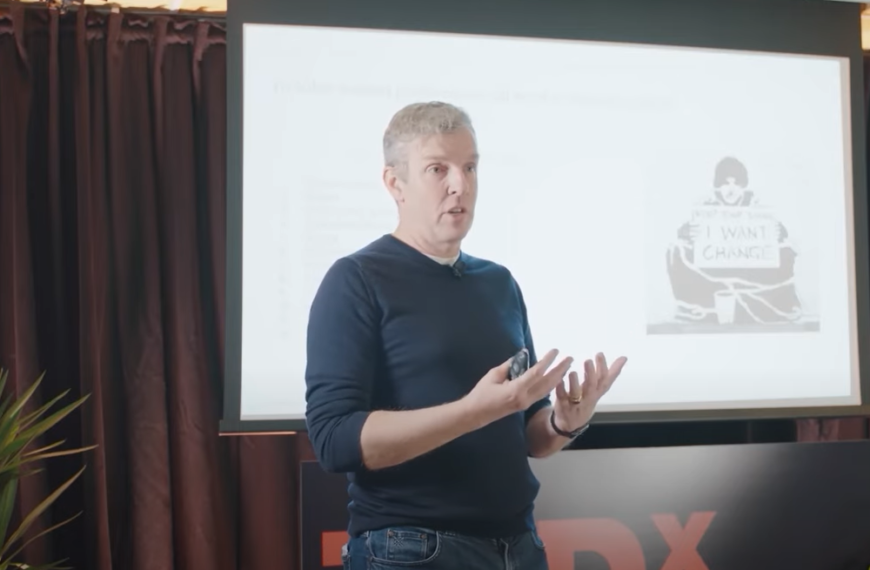In a crisis we can feel anxious and our thinking becomes narrowed – fight, flight or play dead. Many people are feeling the pressure and uncertainty of the current pandemic. The ‘washing machine’ of the mind can be on a constant spin and we might struggle to find the off switch. However, there is a bigger picture that can help us manage our emotions, and it starts with four perspectives.
Taking four perspectives on our lives can allow us to see that bigger picture. By considering each perspective (quadrants on the diagram below), we can start to see clues as to which areas of our lives we need to pay attention to.

Let’s take a look at the four quadrants in turn:
Upper left (IT)– DOING (individual)
The upper left quadrant (IT)– DOING (individual) is all about what I am doing personally and how that affects my physical wellbeing. This is about the observable things I do. Explore this quadrant by asking questions about your sleep, exercise, diet, bodily systems and work habits:
- What’s going well, what’s not going so well?
- What’s the impact on my body and my overall energy?
- What are my current practices (e.g. am I getting more or less sleep, more or less exercise?)
- What are my day-to-day routines from waking to sleep?
Upper right (IT) – DOING (collective)
The Upper right quad (IT) – DOING (collective) is all about the systems and processes that enhance our lives and our ability to take a bigger perspective on what we do in our families, work, community, nation and even the world. Explore this quadrant by asking yourself questions such as:
- How can work be optimised for me, taking into account my colleagues, my company and the customers we serve? (e.g. work from home, office and/or local hub?)
- Can certain processes be done in a different way? (e.g. via video conference, online, by creating online social meetings designed to build better relationships at work)
- What systems are in place at home at the moment to help me? (e.g. childcare, schooling, shopping, looking after elderly relatives)
Lower right (WE) – RELATING and RELATIONSHIPS
The lower right (WE) quadrant is all about RELATING and RELATIONSHIPS and concerns the quality and type of relationships we have and perhaps the ones we want and need. It’s understanding my perspective and yours and working to create a shared meaning. Questions to explore this area might include:
- With whom are my key relationships at work, at home and socially?
- How have these relationships been impacted by the crisis?
- Have I formed any new relationships recently? If so, how have they come about and why now?
- How important are my relationships – which ones could I not be without?
Lower left (I) – BEING
The lower left (I) quadrant is about BEING. It’s about our inner life; our thoughts, feelings, energy management and how we think and what we intend – especially in a crisis. Questions to explore this area might include:
- What is ultimately important to me?
- If my life were going as I wanted it to, what would it look like and feel like?
- What are some of my key beliefs and values I hold that don’t easily change?
- How do I intend to get through and beyond this crisis?
- How do I explain the current crisis to myself? How do I make sense of it?
Consider your quadrants
In all four quadrants, think about how your life is impacted by this current situation. It may well be that several if not all of the quadrants are affected in some way. Under challenging conditions, one quadrant might draw a lot of your attention and can impact directly on other quadrants too. For example, if you’ve lost your job or can’t work, your desire to talk with others outside your family may diminish. For others, the opposite may be true, and they might want to keep talking to anyone so as to not be alone with their minds.
By considering your four perspectives, it may help to give you a bigger context and narrative around what is happening for you, others and the ‘system’ and how you can best interpret what’s happening to decide if any action is needed.
This exercise helps you to see your patterns of thoughts, practices and behaviours. This can then allow you to see through more ‘windows of possibilities’ that may offer different ways of coping, managing and even using this moment to develop personally.
Looking through each quadrant, try to identify two ways in which you are impacted by the current crisis. Try to be specific but don’t overthink it. Consider:
- Which quadrants are easier to identify ways you are impacted and which more challenging?
- Which quadrants did you focus on most? Why are they important right now?
- Which quadrants were harder to find ways you have been impacted – why are they not so important?
- Considering your answers to the above, what capability do you need to draw upon or cultivate to be able to better manage your present situation and move forwards?
- What one thing could you do to start cultivating the capability you need right now?
If, as you answered the above questions, you have found you need to cultivate greater coherence, emotional regulation and focus, please see my previous post as a quick guide.
From all four perspectives, may you stay well.




